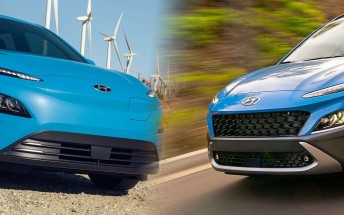Damian Dinning on Nokia N8 video plus 35 camera samples
Nokia released a huge collection of Nokia N8 camera samples - 35 untouched images of various subjects and shot in various conditions. Also, the second part of Damian Dinning's talk about the camera has been released - this one covers the video capturing prowess of the Nokia N8.
Yesterday Damian Dinning detailed at length how he and his team have tuned the camera and offered a single sample. Today's drop however is massive - 35 photos taken straight out of the Nokia N8.
Here are a few photos, you can find the rest at the bottom of this page. Note that some have been shot in full 12MP resolution, while others were taken in 16:9 ratio (9MP):


A taste of the Nokia N8 camera samples
As promised, Damian Dinning also talked about video capture on the Nokia N8 today. The 720p videos are recorded at up to 12mbps bitrate using the H.264 codec while the audio is captured at 48kHz in 128kbps AAC format.
The video uses a process of pixel binning (so one pixel in the video uses the combined information from several detectors from the image sensor), which "in reasonable lightning conditions" results in no noise at all. This allowed the R&D team to switch off the noise removing algorithms in daylight altogether and preserve as much detail in the video frames as possible.
But the still image resolution of the Nokia N8 image sensor is 4000x3000 pixels, while HD video is just 1280x720 pixels in resolution. This sizable difference leaves plenty of headroom for the pixel binning process and enables another cool feature - video zoom.
Sure, it's digital zoom rather than optical - however the pixel binning process allows for zooming without interpolation, preserving detail and sharpness almost intact between 1x and 2x zoom and all the way to 2.5x. This lead to the decision to limit digital zoom at 3x where the image quality already starts degrading. Damian Dinning says that the digital zoom on the Nokia N8 is as good as optical zoom - check out the crops below to see for yourselves.




Crops from video frames shotw with the Nokia N8 at 1x, 2x, 2.5x and 3x zoom
Dining notes that the video source of these crops was captured with pre-production software and there have been even further improvements made to the camcorder software since then.
Unfortunately, there's no video sample, just the crops. We've seen a video sample from the Nokia N8 before though and we were quite impressed (and we imagine things have improved since then).
Finally, Dinning goes on to discuss the Active Hyper-focal Distance feature of the Nokia N8. The N8 team decided on a different approach than the traditional auto-focus methods used for video by today's camera phones.
It keeps objects located between 60cm and infinity sharply focused. This limits how close objects can be to the Nokia N8 when you shoot them, but this approach has the advantage of never letting all other subject get out of focus and trying (and possible failing) to regain focus.
Nokia's audio engineers also had a role to play in the camera tuning - make the audio captured along with the videos as good as possible. They use the two microphones (one on the front and one on the back) of the Nokia N8, to make it a suitable camcorder for all situations.
They've implemented new algorithms that can handle anything from quiet sounds to very loud ones. The front facing microphone (on the display side) is very good at capturing speech, which is vital for videos where you narrate as you shoot. Another set of algorithms works to reduce wind noise, further improving the audio quality.
Here are the rest of the camera samples from the Nokia N8. If we could only get some videos as well. Enjoy!
Reader comments
- Robert
- 11 Mar 2020
- DWk
Yup! If there`s anyone in 2020 that is reading this comment - we have to go back. Look at those samples - no artificial sharpening, overkilled HDR`s and oversaturated painting feel. You can only see that by comparing it to nowdays. I recently bought ...
- Damian Dinning
- 17 Sep 2010
- nGY
don't judge the battery life until the fw is final. re sound quality what specifically are you refering to? br D





































 Xiaomi
Xiaomi Samsung
Samsung Samsung
Samsung Sony
Sony Nothing
Nothing


